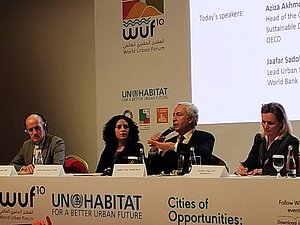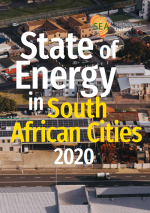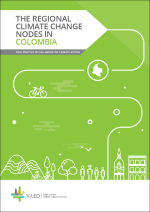Climate Action 2020: How Can We Push For Ambition?

"V-LED" and "Climate Policy Meets Urban Development" projects call for collaborative climate action to unlock cities’ climate potential
Urban transformation is a global imperative. The argument is clear. Home to roughly half the global population and source of about 80 percent of global gross domestic product (GDP), urban areas are simultaneously producers of up to two-thirds of all greenhouse gas (GHG) emissions and first responders on the frontlines to climate change impacts. Transitioning to zero-carbon, climate resilient cities with strong protections for the urban poor (sustainable development goals 11 and 13) requires bold national policies and strong collaboration across sectors and government levels.
Towards a Multilevel Action COP26
The UN has declared 2020 the first year of the Decade of Action to achieve sustainable development and halt dangerous climate change. With stagnating national ambitions among the world’s largest GHG emitters and new scepticism of multilateralism, local and multi-stakeholder action is more important than ever. That is why climate advocates are fervently building momentum to regain the spirit of the Paris Agreement ahead of the COP26, which was originally planned to take place in November 2020 in Glasgow and has been postponed to November 2021 due to the Covid 19 pandemic. With subnational actors ‘leading from below,’ many are calling this Multilevel Action COP26.
However, cities and regions cannot do the heavy lifting alone. National governments have crucial roles to play providing favourable framework conditions and enabling environments that allow for local low-carbon development and investment.
According to research published by the Coalition for Urban Transitions, national and subnational governments each have the governing authority to reduce urban GHG emissions by about one third, and the remaining abatement potential depends on collaboration between the governing levels.
The Partnership for Collaborative Climate Action
It is against this background that the global Partnership for Collaborative Climate Action was initiated at the International Conference on Collaborative Climate Action 2019 in Germany. Its Partnership Declaration, supported by the Federal Ministry for the Environment, Nature Conservation and Nuclear Safety , has been signed by local, regional and national governments around the world.
The Partnership advocates for and supports increased collaboration between local, regional and national government levels to scale up local capacities and resources for more efficient urban and more ambitious national climate action.
Voices from the 10th World Urban Forum
As part of the partnership, participants at the 10th World Cities Forum, which took place in Abu Dhabi in February, discussed success factors for such cooperation. The IKI project "Climate Policy Meets Urban Development", with support by the “Vertical Integration and Learning for Low-Emission Development” IKI project organised the event "Localising global agendas - the case of Collaborative Climate Action". The participants included urban experts, practitioners, policy makers and members of civil society.

“Cities share responsibility with national governments and we need place-based responses” highlighted Aziza Akhmouch, Head of the Cities and Sustainable Development division of the OECD.
Just as importantly, Jaafar Friaa, Lead Urban Specialist at the World Bank stated, “We need to focus on what the capital can win and on what the local government can win.”
The conclusion of the participants was clear: Successful shared solutions need to build on a joint dialogue between the national, regional and local governments to identify a common understanding, define responsibilities and provide incentives. It is in this context that international alliances and initiatives, such as the Partnership for Collaborative Climate Action, can play a crucial role.
How can we push ambition?
The Partnership for Collaborative Climate Action calls upon local, regional and national governments to join the global Partnership to accelerate ambition and scale-up climate action through collaboration across all levels of government, across sectors and borders. The time to act is now.
Find more information on Collaborative Climate Action and the Partnership at www.collaborative-climate-action.org.
Editorial note: This news article is based on the World Urban Forum, the largest UN conference on the urban future, which took place in February 2020, before the COVID-19 pandemic.
The link has been copied to the clipboard
Contact
IKI Office
Zukunft – Umwelt – Gesellschaft (ZUG) gGmbH
Stresemannstraße 69-71
10963 Berlin
Further information
Climate policy meets urban development project




![[Translate to English:]](/legacy/Bilder/2021/20210601_v-led_south_africa_Thumb.jpg)


![[Translate to English:] Die Petronas-Türme im Stadtbild Kuala Lumpurs; Foto: Unsplash/Ishan](/legacy/_processed_/f/8/csm_180215_ishan-seefromthesky_Header310_661e6fc5b9.jpg)
